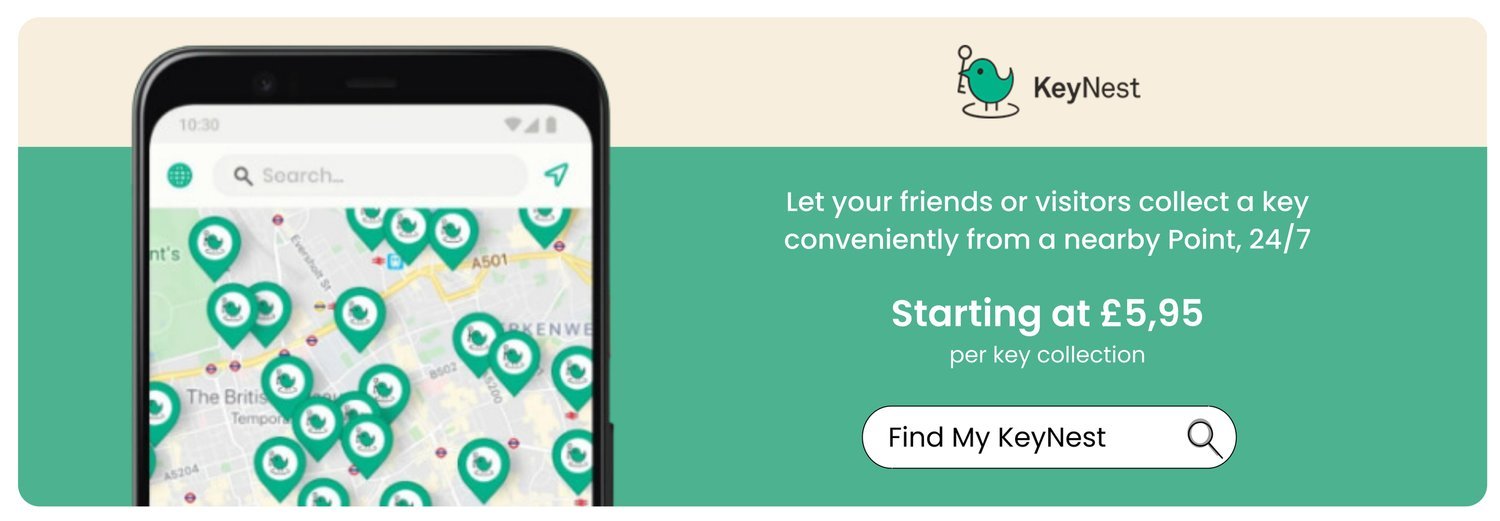Over 1500 key exchange locations nationwide
Airbnb Short-Term Rental Regulations In York
Vacation rental hosting in York offers a fantastic opportunity to earn extra income and connect with travelers from around the world. However, it’s essential for hosts to understand the local regulations to operate legally and maintain a positive reputation. York, with its rich history and thriving tourism, has specific rules that hosts must adhere to for short-term rentals.
These rules cover areas like property registration, taxes, guest limits, and safety compliance. Ignoring these regulations can lead to penalties, fines, or even the removal of your listing. Staying informed about these rules ensures a smooth hosting experience and contributes to York’s responsible tourism. This article breaks down the essential property hosting regulations in York and offers practical advice for compliance.
From zoning restrictions to insurance requirements, understanding these aspects is critical. Let’s explore how you can stay on the right side of the law while offering a memorable experience for your guests.
1. Registering Your Rental Property As An Airbnb Host In York
In York, registering your property is often the first step to becoming a legal property host. Depending on the nature of your property and its location, you may need to inform your local council or obtain permits. Understanding this process ensures you comply with local laws and avoid potential fines.
Mandatory registration: Some properties may require official registration with York City Council.
Licensing for specific properties: Larger properties or those used frequently for short-term rentals may need additional licensing.
Inform your landlord: Tenants hosting on Airbnb must secure landlord permission.
Check lease agreements: Ensure your lease allows for short-term rentals.
Document all permits: Keep copies of permits for future reference or inspections.
Stay updated: Regulations may change, so regular checks with the council are essential.
2. Tax Obligations For Short-Term Rental Hosts In York
As a property manager in York, understanding your tax obligations is crucial. The income you earn from short-term rentals is subject to tax, and failing to declare it can result in penalties. Familiarize yourself with local tax laws to ensure compliance and make hosting a stress-free experience.
Declare rental income: All income from Airbnb must be reported to HM Revenue & Customs (HMRC).
Utilize allowances: The UK Rent-a-Room Scheme may offer tax-free allowances for earnings up to £7,500.
Maintain records: Keep detailed records of all transactions and expenses related to hosting.
Consider VAT: If your total rental income exceeds £85,000, VAT registration may be required.
File taxes annually: Submit accurate tax returns to HMRC every year.
Seek professional advice: Consulting an accountant can simplify complex tax situations.
3. Zoning And Planning Permissions For Holiday Lets In York
York’s zoning and planning laws play a critical role in property hosting. Depending on your property type and location, you may need special permissions to operate legally. Understanding these requirements ensures you meet the city’s planning regulations while maintaining a good relationship with neighbors.
Check zoning restrictions: Certain areas may have limitations on short-term rentals.
Obtain planning permission: If your property is used solely for Airbnb, you may need to apply for change-of-use permissions.
Monitor guest frequency: Exceeding a set number of days may trigger additional requirements.
Consider shared housing rules: Shared housing may be subject to different regulations.
Avoid noise complaints: Ensure your property complies with noise and disturbance policies.
Consult York City Council: Get clarity on specific planning rules in your area.
4. Safety And Health Compliance For Airbnb Hosts
Ensuring the safety and health of your guests is a top priority for property hosts. York has specific safety regulations that must be followed, including fire safety and proper property maintenance. Adhering to these guidelines protects both your guests and your hosting reputation.
Install smoke alarms: All properties must have working smoke detectors in key areas.
Provide fire extinguishers: Ensure fire safety equipment is accessible to guests.
Maintain gas safety: Arrange annual gas safety checks by certified engineers.
Check electrical systems: Have a professional inspect wiring and appliances regularly.
Ensure cleanliness: Maintain a high standard of hygiene to prevent health risks.
Display emergency contacts: Provide guests with local emergency numbers and instructions.
5. Guest Limits And Behavior Expectations Of Regulations In York
Setting clear guest limits and behavior expectations is essential for maintaining a peaceful hosting environment. In York, adhering to these guidelines helps prevent disturbances and ensures your property aligns with local community standards.
Establish occupancy limits: Follow rules regarding the maximum number of guests per property.
Create house rules: Clearly communicate expectations for noise, smoking, and pet policies.
Monitor large gatherings: Properties may be restricted from hosting parties or events.
Notify neighbors: Inform neighbors about hosting activities to foster goodwill.
Enforce quiet hours: Set specific times for reduced noise to avoid complaints.
Use guest agreements: Consider written agreements to clarify responsibilities.
6. Insurance Requirements For Short-Term Rental Business Property In York
Having the right insurance coverage is vital for property hosts in York. Standard home insurance may not cover short-term rentals, so securing the appropriate policies can save you from potential financial risks. This section outlines what hosts need to know about insurance.
Check current policies: Review your existing home insurance to determine coverage limitations.
Purchase specialist insurance: Look for policies specifically designed for property hosts.
Cover guest injuries: Ensure liability coverage protects you from claims by guests.
Protect property damage: Include coverage for potential damages caused by guests.
Consider loss of income: Some policies cover lost income due to unforeseen disruptions.
Use Airbnb’s Host Guarantee: Take advantage of Airbnb’s built-in protections, but review their limits.
Navigating Airbnb Hosting Accommodation In York
Successfully hosting on Airbnb in York requires a thorough understanding of local regulations and responsibilities. By complying with property registration, tax obligations, and safety standards, hosts can operate confidently and legally. Following zoning laws and planning permissions ensures a harmonious relationship with the community.
Clear guest rules and appropriate insurance coverage further protect both hosts and guests. Staying informed about updates and consulting with local authorities can help you navigate any changes in regulations. Ultimately, adhering to these guidelines enhances your hosting experience and contributes to York’s reputation as a responsible tourism destination.
By aligning your hosting practices with local laws, you can create a secure and welcoming environment for guests while avoiding potential pitfalls.
About Us: KeyNest
KeyNest offers you a convenient service for storing and exchanging your property keys. You can drop off a key at any of the 7,000+ locations in our network, so there’s one such Point located next to your property.
Guests, cleaners or contractors can then collect the key securely from a KeyNest Point or KeyNest Locker which is usually open 24/7. You'll be notified each time the key is picked up or returned, and you can even customize check-in and check-out times. By leveraging technology and a global network of locations, KeyNest continues to redefine property management, offering solutions tailored to meet the evolving needs of the rental market..
KeyNest has an ever-expanding global network of locations located just minutes from your property. To find out more you can contact us.
Neil Beltran 17 January 2025



